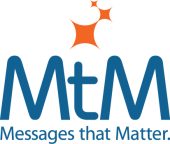I don’t think B2B technology marketers have any idea what a true transformation is. Transformation means to change from one form to another. Caitlyn Jenner is a good example of a transformation. With Caitlyn in mind, how many businesses turn into something totally different? One in one hundred, maybe. And how many B2B software companies are truly changing the way their customers do business? None.
I have yet to find a B2B software or technology company that substantiates its transformational claim. If you come across one, please bring it to my attention. I tell my clients that you need to prove every claim you make. The reaction you want when you make a claim is for the recipient to think, “that’s interesting. Tell me more. How do you do it?”
Perhaps the problem is that companies just don’t know how they facilitate business transformation. I get the impression that some B2B software marketers use “transformation” because it sounds impressive. Unfortunately for them, “transformation” is a complicated word, and the brain likes it simple and easy-to-grasp. A word like “transformation” creates skepticism in the decision-making portion of the brain, according to the book “Neuromarketing.”
Claiming you transform is so “me-too”
But even if your B2B technology product is truly transformational, using it is so “me-too.” You sound like everyone else when you use any form of transform. Every B2B software market I follow has companies in it claiming transformational powers. I have been documenting transformational claims by B2B software companies for two years. It’s fourteen pages and growing daily. In doing research for this blog, I added Xerox which is “transforming today’s finance function.”
Here’s a classic “me-too” example. These three B2B software companies have some common functionality and are transforming the customer experience:
- More than 600 of the world’s most respected and innovative companies leverage Moxie Software solutions to transform the customer experience.
- See how Pega can transform your customer experiences with a next-generation CRM application.
- A completely transformed, individualized CRM user experience that is immersive, engaging, and intuitive. Sugar UX fuses the straightforward simplicity, mobility, and social aspects of a consumer app with the business process optimization of conventional CRM.
For a reason beyond my comprehension, companies who deliver huge productivity gains think they are transforming. But they are not. They are simply helping customers be more productive and efficient. They help customers do their job better. They aren’t changing customers’ businesses from one form to another, and if they read their copy carefully, they’d know it. Some companies quickly contradict themselves by explaining how they transform in a way that doesn’t sound at all transformative:
- Pramata Customer Relationship Intelligence™ transforms customer contract data into fuel for your sales force. Retain and grow your most valuable customer relationships.
- Acxiom’s data and technology have transformed marketing – giving our clients the power to successfully manage audiences, personalize customer experiences and create profitable customer relationships.
- Transform every touchpoint with industry-leading customer care and DSM products. (Opower)
Some transformational claims defy logic and aren’t believable:
- Agilysys is an innovative software development company dedicated to transforming the guest experience by improving the quality of service through technology.
- Zscaler is transforming enterprise security with the world’s largest Security Cloud built from the ground up to safely enable users doing business beyond the corporate network.
- It’s a customer-centric world. And the ability to accommodate your buyer’s needs in today’s digital landscape requires more than a simple tweaking of your internal processes; it requires total transformation of the way you go from Quote-to-Cash. (Apttus)
Some transformational claims make no sense. It’s hard to figure out what they mean. Here’s an example:
- Every day thousands of insurance agencies, carriers, MGAs, MGUs, and 22 states use Vertafore to grow their businesses, process claims for their customers, and ensure the business of insurance continues its transformation.
Some transformational claims could not possibly be true. Unless debits are turned into credits and credits into debits, these claims by companies offering financial oriented solutions are far-fetched to say the least:
- Workday Financial Management is transforming enterprise finance.
- IBM Cognos® TM1® is an enterprise planning software platform that can transform your entire planning cycle, from target setting and budgeting to reporting, scorecarding, analysis and forecasting.
Xerox takes finance transformation to the next level of ridiculousness:
- With a global team and the latest innovations in cloud-based processing platforms, robotic process automation and reporting and analytics, we are helping companies achieve transformational finance. Reach new heights of efficiency, quality and innovation — and redefine what transformation means — through our finance and accounting outsourcing.
Some companies seem to think technology like the cloud or innovative software design leads to business transformation. Here are some examples:
- Dimension Data believes in the power of technology to transform your organization, make things work better … and take your business to the next level.
- Thousands of organizations around the globe depend on Rocket to leverage, optimize, and transform their business across technology boundaries and computing platforms.
- TalentWise Hire transforms the way HR screens and on-boards new hires from offer letter to day one with a mobile-friendly, single cloud-based solution.
Then there are the transformations that lead to insight:
- As the leader in business analytics software and services, SAS transforms your data into insights that give you a fresh perspective on your business.
- Pitney Bowes transforms location and business data into enhanced insight.
The use of transformation in marketing has been around since Microsoft introduced Windows 3.0 in 1990. It was positioned as “transforming the way you use at PC.” Even though it was only a better way to use a PC, and not a transformation, at least it was a unique claim. No one was using it. Now everyone uses various forms of “transform.” Unless you want to blend in with the crowd, best to eliminate it from your marketing communications vocabulary.
